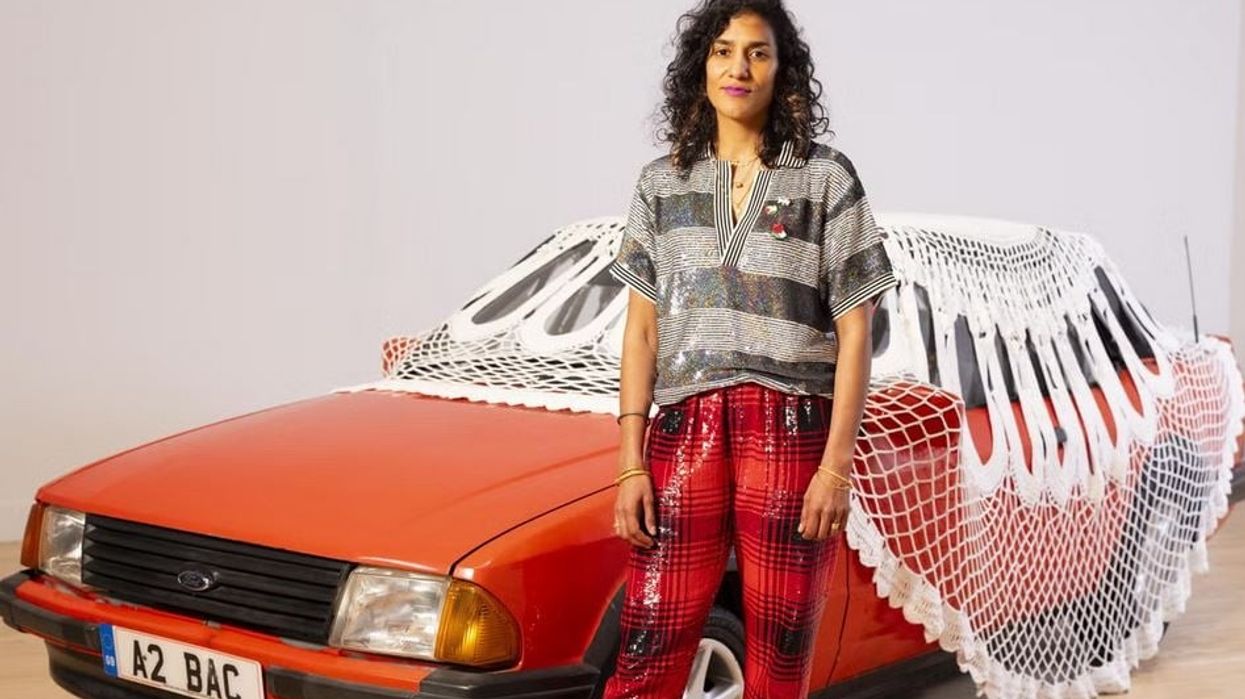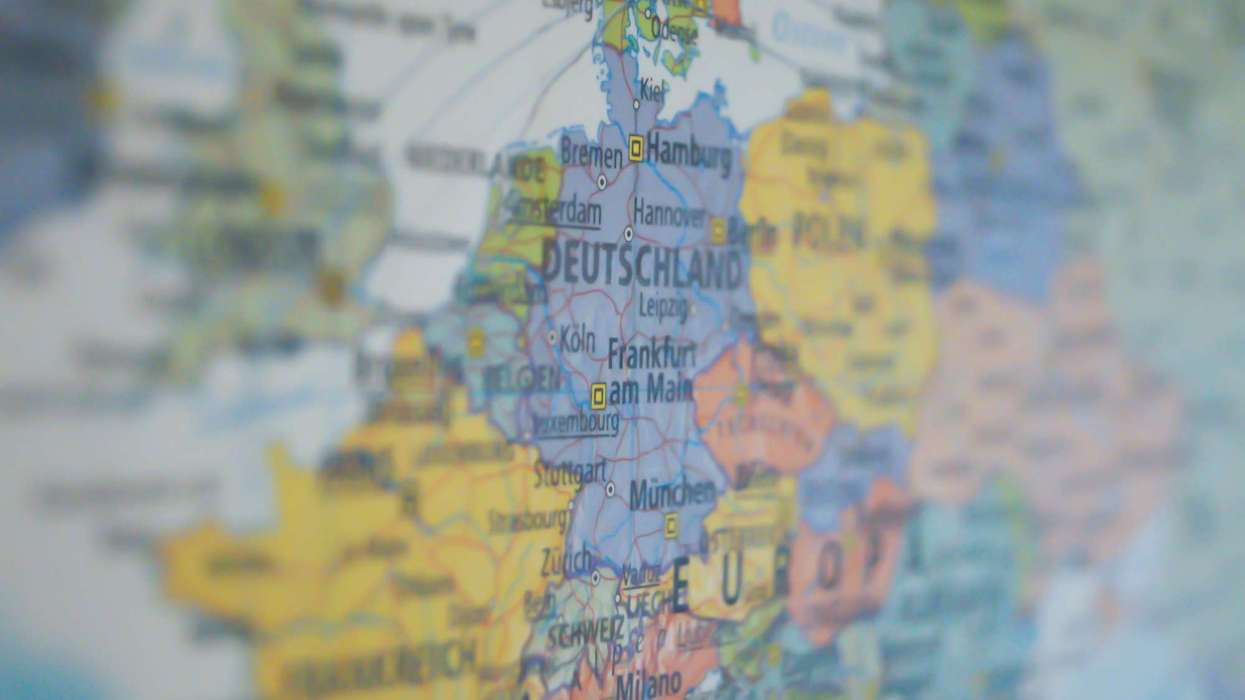SCOTTISH artist Jasleen Kaur won the prestigious Turner Prize, as the UK contemporary art award celebrated its 40th anniversary.
Kaur was honoured for her solo exhibition Alter Altar, which includes an installation of a Ford Escort car with a giant doily on it.
She was announced the winner during a ceremony at the Tate Britain gallery in central London.
The 38-year-old pipped Philippines-born Pio Abad, Manchester-born Claudette Johnson and English artist Delaine Le Bas to the award.
Kaur walked away with £25,000, while the remaining shortlisted artists were awarded £10,000 each.
The five jury members chose Kaur for "her ability to gather different voices through unexpected and playful combinations of material".
During her victory speech she called for a ceasefire in Gaza and said "Free Palestine".
Glasgow-born Kaur, of Indian heritage, draws inspiration for her work from her experiences growing up in Scotland’s Sikh community.
Jasleen Kaur Sociomobile 2023 (Photo: Jasleen Kaur)Her installations include a diverse array of objects: family photographs, an Axminster carpet, a vintage Ford Escort adorned with a giant crocheted doily, the iconic Scottish drink Irn-Bru, and kinetic hand bells. These elements are brought together to reflect the London-based artist’s upbringing in Scotland.
“I’ve received so many messages today from people in the local Sikh community and others I grew up with. Something this visible holds deep meaning for many different groups, and I’m proud to represent them all,” said Kaur.
Kaur initially studied jewellery making before transitioning to applied art, which sparked her interest in creating objects that tell stories through their combinations.
Her exhibition, along with those of the three other shortlisted artists, is on display at the Tate Britain Museum by the River Thames until mid-February 2025.
Linsey Young, co-curator of the exhibition, described Kaur’s installations as addressing “anti-colonialist discussions, anti-imperialist struggles, and a reflection of her lived experience, family, and upbringing.”
Young highlighted one central piece: a vintage Ford Escort covered in a crocheted cotton doily. “The car symbolises one of her father’s aspirations as a migrant who moved from India to Glasgow. Owning such a car was an ambition. The doily, a domestic object made on a large scale, connects to the history of migration and labour—particularly of Indian workers in the North of England after the war, many of whom worked in cotton mills,” she explained.
Other pieces in Kaur’s display include a harmonium placed on a lush carpet, inviting visitors to sit and engage with kinetic worship bells. A central feature is Yearnings 2023, an improvised vocal soundscape of the artist’s voice layered with snippets of pop songs. This music plays from the speakers of Sociomobile 2023—the vintage Ford Escort—filling the space with echoes of Kaur’s musical memories.
The Turner Prize jury commended her for her “evocative combination of sound and sculpture to address family memory and community struggle.”
An accompanying film in the exhibition explores the Sikh concept of Miri Piri, which emphasises a balance between the political and spiritual. Through her art, Kaur seeks to explore pathways for humanity to coexist harmoniously.
Established in 1984 and named after British painter J.M.W. Turner, the prestigious art prize is awarded to an artist born or based in the UK for an outstanding exhibition or presentation of their work in the past 12 months.
Previous victors include now-household names such as duo Gilbert & George, British Indian Anish Kapoor, Rachel Whiteread, Antony Gormley, Chris Ofili, Steve McQueen and Damien Hirst.
British artist Jesse Darling won last year's prize for his sculptures and installations that invoke societal breakdown.
The annual award seeks to encourage debate around new advances in contemporary art and is given to a visual artist based or born in Britain.
But that debate has often spilled over into controversy. Ofili, for example, won in 1998 for incorporating elephant dung into his paintings.
Hirst in 1995 exhibited pieces including a rotting cow's head, while Tracey Emin's 1999 entry "My Bed" -- an unmade double bed with stained sheets surrounded by soiled underwear, condoms, slippers and empty drink bottles -- attracted huge attention.
(Agencies)





